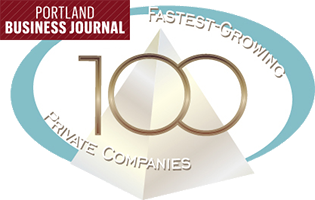It’s been a while since I posted anything in the management category, so it’s time to get caught up. In a past life I was a Software Development Director, so I wanted to write about some things I figured out so that other programmers-turned-sudden-managers have some tips. The below is about goals, and is written for the employee (i.e. the person writing and achieving the goals), but it’s equally useful for managers — just adapt the perspective so that everytime you see the word “You” mentally replace it with “My Employee”.
Goals as Performance Review Items
I was thinking the other day about employee goals. Some companies have managers sit down with their employees each year and come up with goals to achieve for the upcoming year. An employee’s performance review is then often tied to whether they complete their goals or not. So there’s an incentive to be shouting “Gooooaaaaaallllll” at the end of the year.
However, it’s hard for many people to come up with their own goals in the workplace. We all know it has to be work-related, and in some professions it’s easier than others (e.g. sell 10% more widgets than last year). In fact when I researched this in the past, a lot of the example “good goals” were in terms of manufacturing or sales.
But as a programmer (or other IT worker), in a workplace where priorities can change and projects come and go and get completed in months or weeks, what do you do? What are some goals you can choose and have a chance at pulling them off?
Be Smart About Your Goals
First of all, let’s review some basics on goal picking. There’s an acronym for good goals: S.M.A.R.T. (or as a friend liked to say, “TARMS”). I’ve seen many versions of what the different letters mean, but in genenral SMART goals are
- Specific
- What specifically will you do? Answer the Who, What, Where, When, Why behind it.
- Bad: “Do a better job of estimating effort”
- Good: “Have my actual effort come within 30% of my effort estimates, on average, for my web development projects in the next six months.”
- Other meanings for “S”:
- Stretching: it should be a challenge for you
- Significant: it should be important
- Systematic: it should be something you can work on or chip away at
- Synergistic: working towards the goal should not be at cross-purposes to getting your job done — you don’t want feel like you’re stealing time away from your “real” projects to work on your goals. It would be ideal if working towards your goal is incorporated into or part of doing your job. This is particularly important for employees who are already overloaded at work and don’t have a lot of free time outside of work.
- Measurable
- How will you and your manager know if the goal has been achieved? There should be some criteria for knowing that it’s been completed. Anyone who deals with project management should be familiar with this theme.
- Bad: “Learn C#”
- Good: “Complete a C# class this fall and get a Brainbench C# certification by the end of the year.”
- Other meanings for “M”:
- Meaningful
- Motivating
- Memorable
- Acceptable
- The goal should ideally be set by you, or at least acceptable to you. You should have a desire and willingness to complete it. It should be something you’re interested in and that will have real value for you when it’s completed (other than just a performance bonus based on goal achievement). For example, will you learn a new skill or technology? Will you feel a sense of pride and accomplishment?
- Bad: “Devote an extra day a week to code maintenance on our legacy systems” (unless you like legacy maintenance, in which case I have some jobs for you….)
- Good: “Research new technology and development techniques and deliver a proposal on upgrading some of our legacy systems.”
- Other meanings for “A”:
- Attainable: this is a common meaning for “A”. It closely overlaps with Realistic, below.
- Action plan: you should put together a plan on how you will accomplish your goal
- Agreed-upon: similar to Acceptable, it should be something that the manager and employee both agree is a good goal.
- Accountability: you should be accountable to completing your goal, and failing at it should require an explanation from you as to why. Not achieving your goal should be seen in a similar light as not completing any other project.
- Realistic
- You should be able to actually attain this goal. It should be a bit of a challenge to accomplish, but not so much that it’s a hardship. It should require a level of commitment from you.
- Bad: “Run 1 mile a month” (too easy) or “Work out twice a day” (too much)
- Good: “Register, train for, and participate in the marathon this year, including finding a training regimen and/or running club appropriate for beginners”
- Other meanings for “R”:
- Relevant: it should be relevant to work or your career. It probably shouldn’t be “Take a wine-tasting class this fall.” FYI, I feel a fitness- or health-oriented goal is OK as long as you have other goals that are more IT-focused. IMO a healthy, fit employee is beneficial to the company because they’re less sick, have more energy and less stress, can save the company money on health insurance and/or workers compensation, and can inspire fitness in others. Plus they’re better able to help lug those 21″ CRTs to the new office. 😉
- Time frame
- There should be a timeframe or deadline for completion of the goal. This is part of being Specific, but having an end point helps encourage employees to get it done.
- Time frame also means you should know when you’re going to be able to work on your goal. Do you have available time to complete it? When will you work on it? How much time will it require to complete? There are a lot of people who are overloaded at work, working 50+ hours a week, and have full and equally-demanding family lives outside of work. Those people will need to sacrifice something to gain the time they need, or choose goals that don’t require as much time, or get their boss to free up their work schedule a bit so they can work on their goals.
- Bad: “Take a C# class sometime” or “Write a 1000-page book on project management next month”
- Good: “Take a C# class in the evening next quarter” or “Write an article on project management next month and submit it to at least 3 web sites and magazines.”
- Other meanings for “T”:
- Tangible: a goal that can be measured on paper or in an otherwise physical manner is tangible. But IMO that’s too closely tied to Measurable
That’s all for today, but next time I’ll follow up with more suggestions, guidelines, and ideas for goal-setting in an IT world. I’ll write more for the manager’s perspective.



